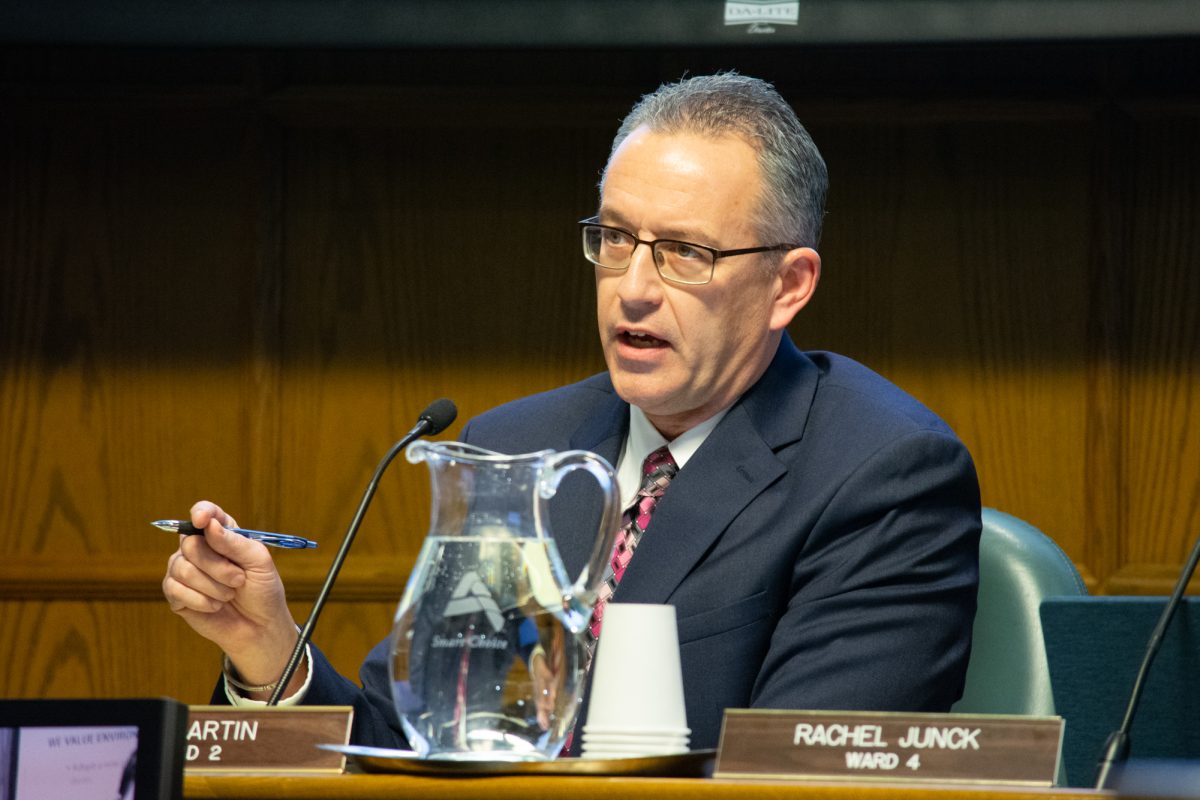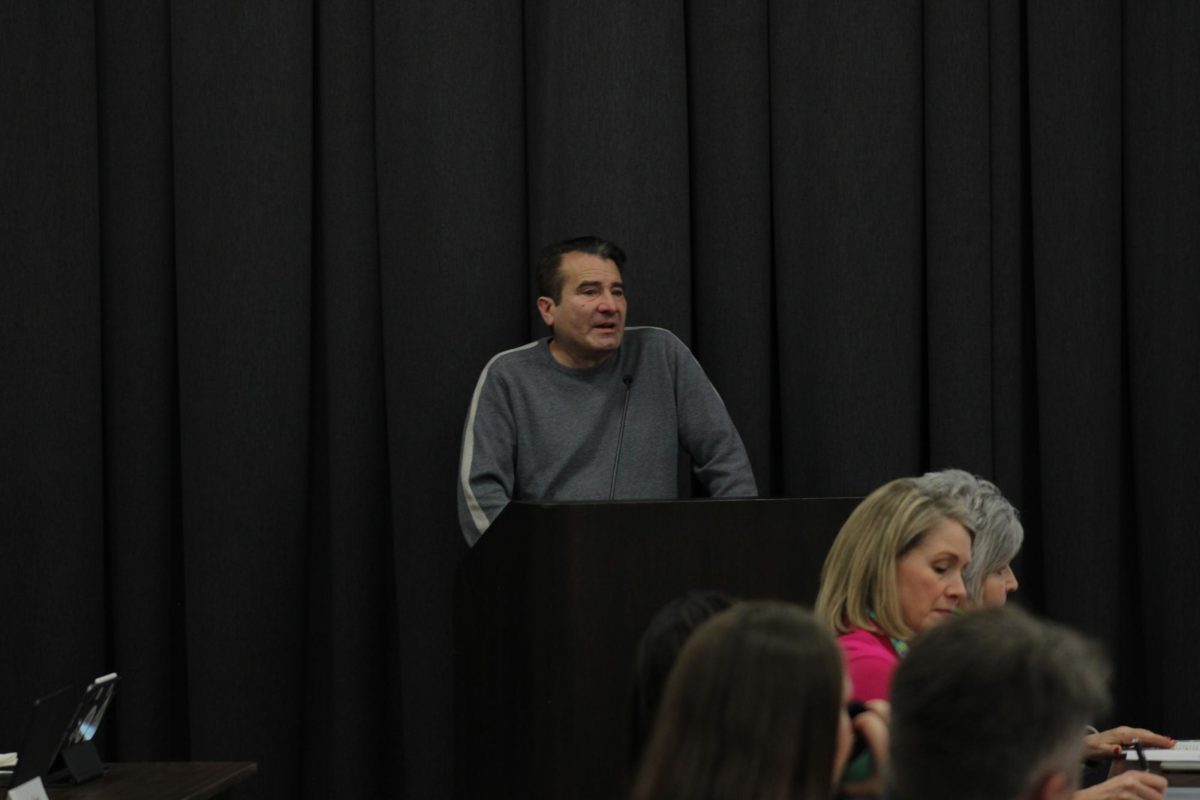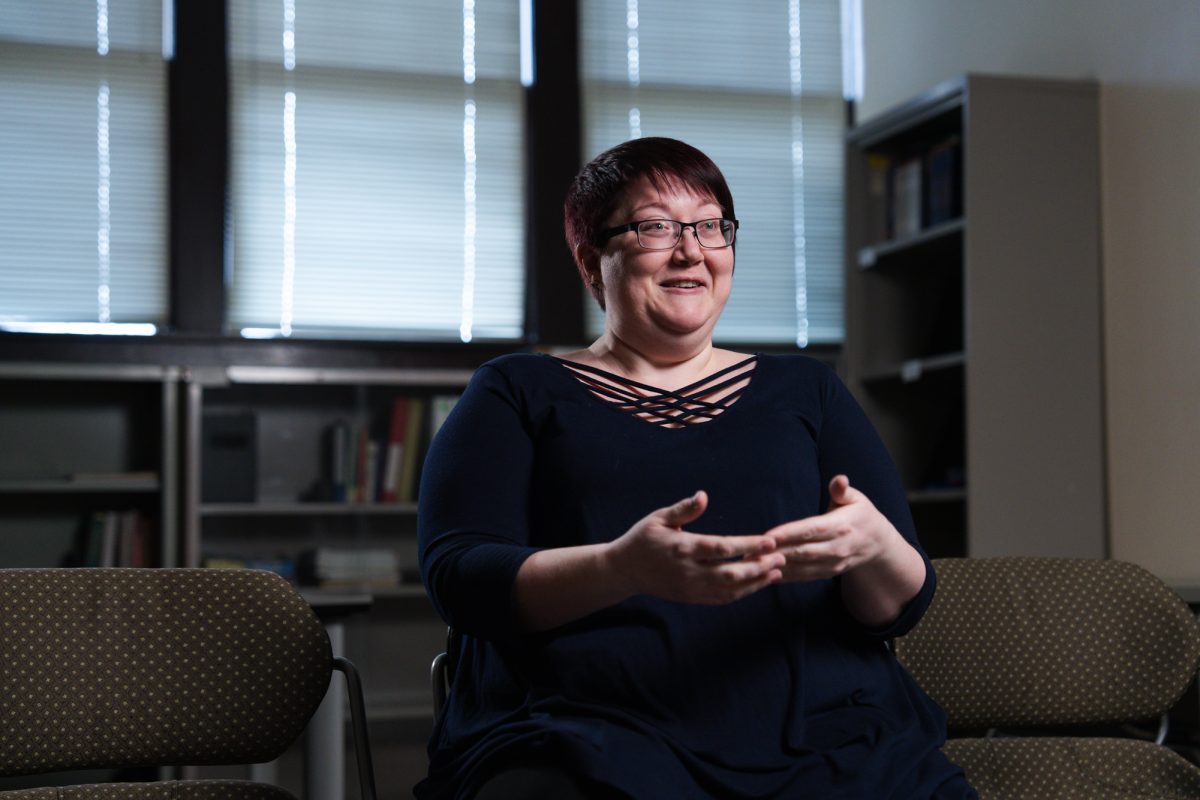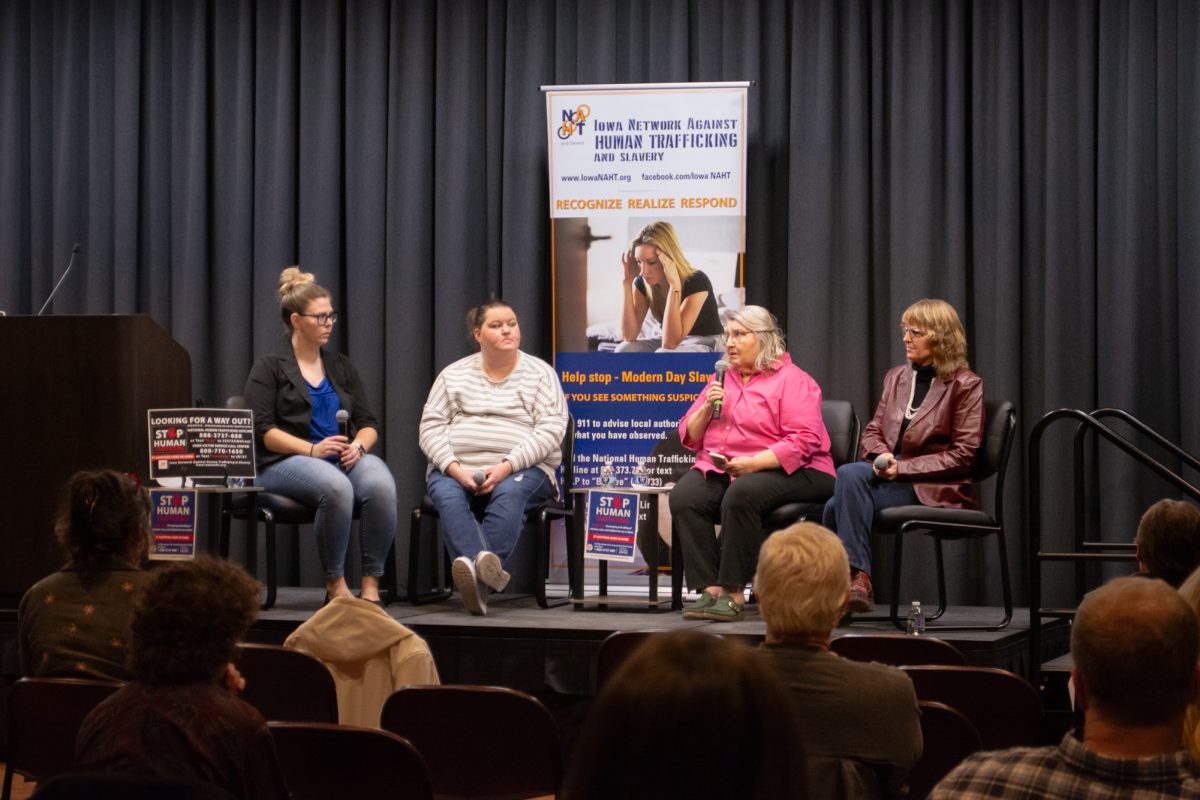Groups sponsor GMO-free dinner
April 9, 2001
A potluck dinner introduced the debate over the future of genetically modified foods for ISU students and community members.
A free supper at the University Lutheran Congregation, 2126 Gable Lane, was held last week by the ISU Green Party and the Student Environmental Council. Participants debated the issues surrounding genetically modified foods such as environmental, health and economic ramifications of their use.
Shelly Higdon, member of the Student Environmental Council and senior in environmental science, said the group’s main concern was not the use, but the fact GMOs are not clearly labeled.
“The current policy is that genetically engineered foods can be voluntarily labeled,” she said.
Health benefits of GMOs are unknown, Higdon said, and people should have the choice of what they want to purchase at the store.
“Everyone should have the choice of what they want to eat,” she said.
Anna Behm, senior in horticulture, said large corporations have taken the control and choices away from producers and consumers.
Despite their stance on GMOs, participants said they do not oppose all aspects of the product. They noted certain advantages to using GMOs, such as a strain of rice being used in Asia that has been modified to contain vitamin A. However, they said using of GMOs to feed more people is a half-truth.
“I think there is a surplus already, and 70 percent of it is genetically modified,” Higdon said. “The problem is not that we don’t have enough food; it’s the money to purchase the food and how it’s distributed.”
Angela Sokolowski, senior in animal ecology and co-president of the Student Environmental Council, reinforced the stance, saying the price of the fertilizer-dependent GMOs is too high for impoverished countries to afford. Behm agreed, stating other methods could be used to control the level of famine.
“There are more sustainable forms of production that people need to take advantage of,” she said.
Stacey Brown, community member of the Student Environmental Council, said the impoverished have the knowledge to take advantage of new agricultural techniques and therefore do not need transnational corporations telling them what to do.
Use of GMOs isn’t necessarily bad, Brown said, but the use is not currently sustainable because it cannot be entirely contained, and the amount of time for a GMO reaction varies on the type of organism being modified.
“The long-term environmental effects haven’t been studied . I don’t think that its a bad thing, but we don’t know enough,” she said. “You have to have enough time for a species to go through its entire life cycle to know.”






